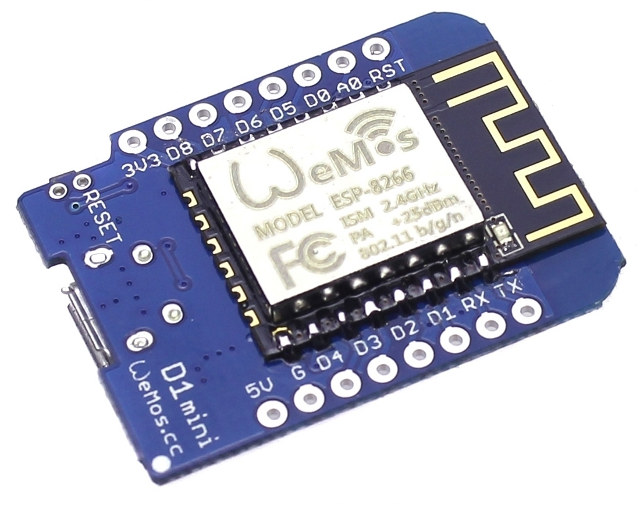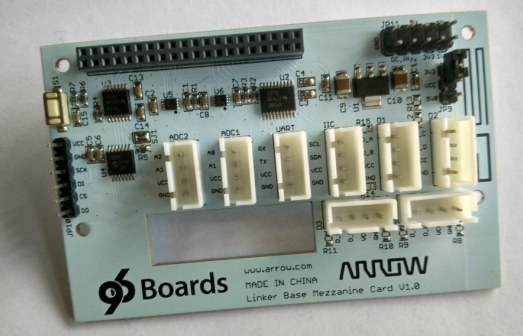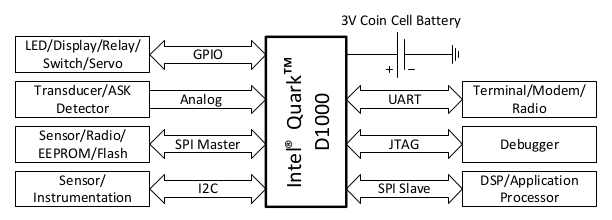Wemos D1 board, a $9 ESP8266 board in Arduino UNO form factor, now has a little brother with Wemos D1 mini. The board looks somewhat similar to NodeMCU with breadboard friendly I/Os on the sides and a micro USB port for power and programming, but what could make it more interesting, beside the $4 price tag, is that the company also developed several shields (aka add-on boards). Wemos D1 mini specifications: WiFi 802.11 b/g/n module based on ESP8266EX with 4MB flash Expansion – Through holes with 11x digital input/output pins (3.3V) supporting interrupt/PWM/I2C/one-wire (except D0) 1x analog input (3.3V max input) Reset and power signals (5V, 3.3V, GND) USB – micro USB port Misc – Reset button Power – 5V via micro USB or 5V pin Dimensions – 34.2 x 25.6 mm Weight – 10 grams The board is said to be compatible with Arduino IDE and NodeMCU firmware. ESP8266 […]
96Boards Mezzanine Add-on Boards with Sensors, Buttons, Relays, etc.. Are Starting to Show Up
Beside excellent software support, and a great community, the two most popular maker boards on the market, namely Arduino and Raspberry Pi, also have many add-on boards, respectively called Shields and Hats, to expand their user and connect sensors, buttons, displays, and so on… Several Linaro’s 96Boards compliant development board launched last year such as LeMaker Hikey and DragonBoard 410c with support for recent versions of Android and Debian, and recently three Mezzanine add-ons boards, as well as somewhat pricey USB to TLL debug board, have started to show up to make it an even more interesting platform. Linker mezzanine card starter kit for 96Boards The first kit is made by LinkSprite and includes Linker Base Mezzanine Card with several sensors and cables. Eight 4-pin connectors with ADC, UART, I2C, and GPIOs allow you connect the eight sensors ad modules provided with the kit:a button module, a red LED module, […]
Intel Unveils Three New Micro-controllers for IoT: Quark D1000, Quark D2000, and Quark SE
Intel’s subsidiary, Wind River, has recently announced two operating systems for the Internet of things with Rocket RTOS and Pulsar Linux supported respectively by Quark MCUs, and Intel Atom processors, as well as some ARM SoCs. But it’s not the only “IoT” announcement made by Intel in the last week, as I found out via EETimes that the company also unveiled three new Quark SoCs, namely Quark D1000, and Quark D2000, and Quark SE. Intel Quark D1000 Contrary to previous Quark processor and the upcoming D2000 and SE processors, D1000 is not compatible with x86 instructions set, and features the following: 32-bit Harvard CISC CPU @ 33 MHz with single cycle barrel shifter, two cycle multiplier, multi-cycle divider, integrated 32-bit timer, programmable interrupt controller, and JTAG debugger. 128-bit wide 32 kB code flash and 8 kB ROM 32-bit wide 8 kB SRAM and 4 kB data flash Osciallators 20-33 MHz […]




